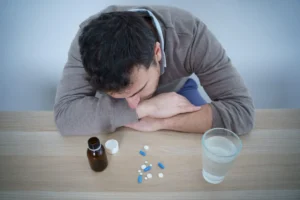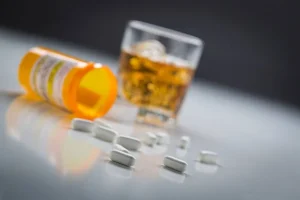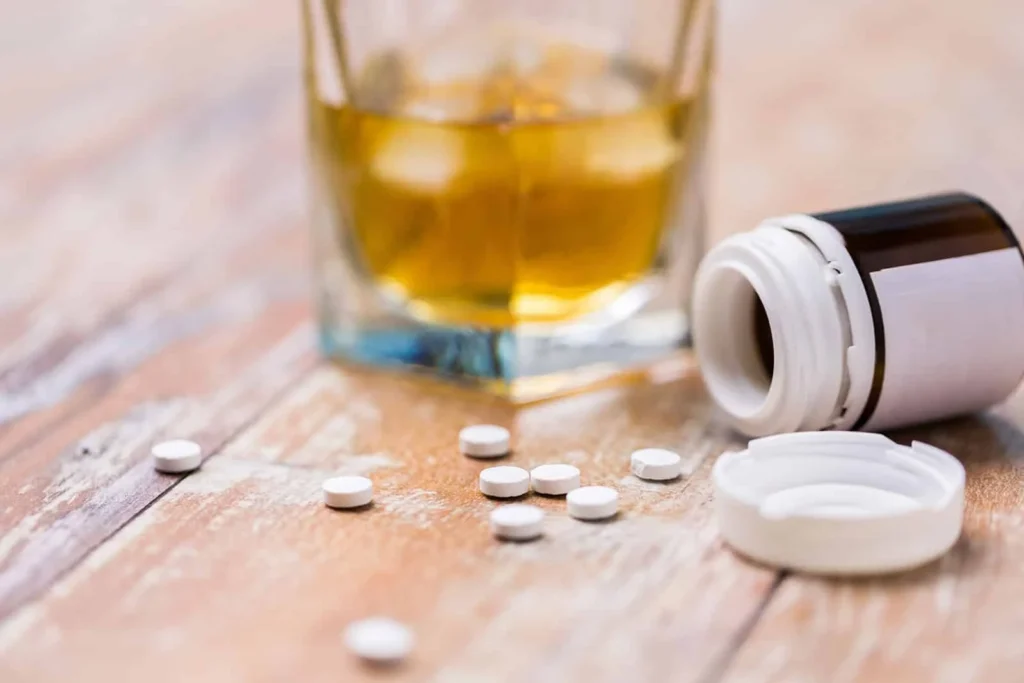Have you ever been tempted to have a drink while on medication, wondering if just one might be okay? It’s a common scenario for many, especially for those prescribed widely used medications like Zoloft (sertraline). But mixing alcohol with medications like Zoloft can lead to unexpected and sometimes dangerous results.
In this blog, we’re going to unpack the risks and realities of combining alcohol with Zoloft. We’ll explore why this mix can be risky, what happens in your body when you mix them, and the potential side effects you might face. Whether you’re currently taking Zoloft or considering it, understanding these interactions is crucial for your health and safety. Let’s dive in and get clear on how to manage your treatment safely while navigating social situations involving alcohol.
Contents
Understanding Zoloft: Its Uses and Effects
 Zoloft (sertraline) is a widely prescribed antidepressant belonging to a group of drugs known as selective serotonin reuptake inhibitors (SSRIs). By understanding its uses and how it affects the brain, patients can better comprehend the importance of adhering to guidelines, including those regarding alcohol consumption.
Zoloft (sertraline) is a widely prescribed antidepressant belonging to a group of drugs known as selective serotonin reuptake inhibitors (SSRIs). By understanding its uses and how it affects the brain, patients can better comprehend the importance of adhering to guidelines, including those regarding alcohol consumption.
Primary Uses of Zoloft:
- Zoloft is primarily used to treat major depressive disorder, anxiety disorders, (including generalized anxiety disorder, social anxiety disorder, and panic disorder), OCD, and post-traumatic stress disorder (PTSD).
How Zoloft Works in the Brain:
- Serotonin Levels: Zoloft works by blocking the reuptake of serotonin, a neurotransmitter, into neurons in the brain. By preventing the reabsorption of serotonin, Zoloft increases its availability and activity in the brain, which helps to improve mood and reduce feelings of anxiety and depression.
- Neurotransmitter Effects: The increase in serotonin levels can contribute to the restoration of normal brain function and a decrease in the symptoms of depression and certain anxiety disorders.
Zoloft’s ability to regulate mood through its actions on brain chemistry makes it a valuable tool in the management of depression and other mental health disorders. However, its interaction with other substances, like alcohol, needs careful consideration to avoid diminishing its effectiveness and to prevent adverse effects.
How Alcohol Interacts with Zoloft?
 Mixing alcohol with Zoloft (sertraline) can lead to complex interactions that impact the medication’s effectiveness and increase risks due to altered drug metabolism and increased side effects.
Mixing alcohol with Zoloft (sertraline) can lead to complex interactions that impact the medication’s effectiveness and increase risks due to altered drug metabolism and increased side effects.
Impact on Metabolism:
- Liver Processing: Alcohol can affect liver enzymes that metabolize sertraline, potentially leading to higher or lower than expected medication levels in the body.
- Absorption Variability: Alcohol can interfere with the absorption of Zoloft, making its effects less predictable.
Increased Side Effects:
- Enhanced CNS Depression: Both substances depress the central nervous system, amplifying effects such as drowsiness, dizziness, and impaired motor functions, which could be dangerous when performing tasks like driving.
- Risk of Overdose: Consuming alcohol can mask the effects of Zoloft, possibly leading to accidental overdose if more medication or alcohol is consumed in an attempt to achieve the desired effects.
Worsening Symptoms:
- Exacerbation of Depression and Anxiety: Alcohol, a depressant, can negate the beneficial effects of Zoloft on mood disorders, potentially worsening symptoms.
Serotonin Syndrome Risk:
- Interaction Effects: In rare cases, mixing alcohol and Zoloft can unpredictably alter serotonin levels, increasing the risk of serotonin syndrome, a serious medical condition.
Due to these risks, it is generally recommended to avoid alcohol while taking Zoloft. Patients should discuss their alcohol consumption with their healthcare provider to ensure safe use of the medication.
Side Effects and Dangers of Mixing Zoloft with Alcohol
 Mixing alcohol with Zoloft (sertraline) can lead to several adverse effects that compromise both safety and health. Here’s a concise list of potential side effects and dangers:
Mixing alcohol with Zoloft (sertraline) can lead to several adverse effects that compromise both safety and health. Here’s a concise list of potential side effects and dangers:
- Heightened Drowsiness and Dizziness
- Increased Risk of Overdose
- Worsening of Depression and Anxiety Symptoms
- Impaired Judgment and Cognitive Functions
- Risk of Serotonin Syndrome
- Enhanced Emotional Instability
These risks underline the importance of avoiding alcohol while taking Zoloft to ensure the effectiveness of the treatment and the safety of the individual.

 If you find yourself in a situation where you’ve consumed alcohol while taking Zoloft (sertraline), it’s important to know the steps to take to ensure your safety. Here’s what you should do:
If you find yourself in a situation where you’ve consumed alcohol while taking Zoloft (sertraline), it’s important to know the steps to take to ensure your safety. Here’s what you should do: